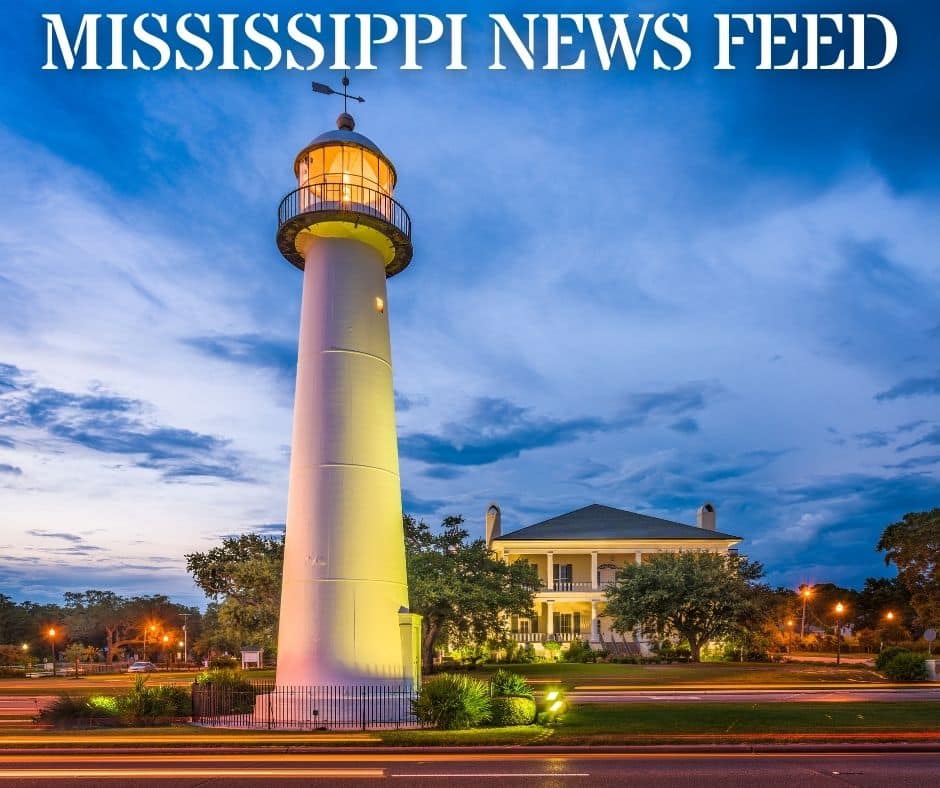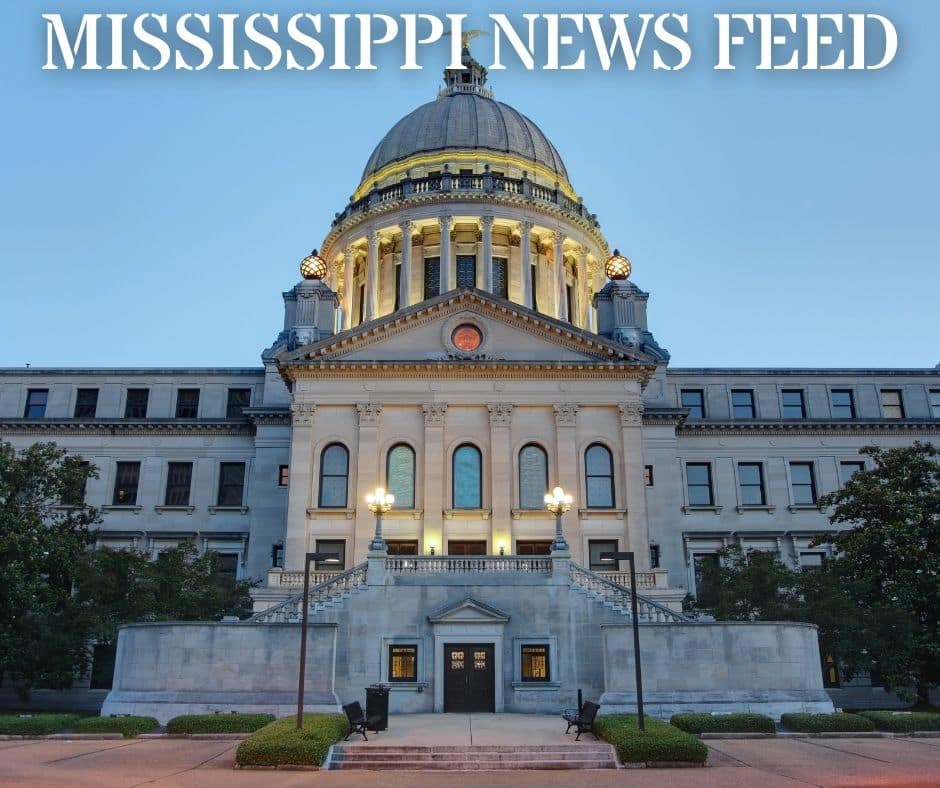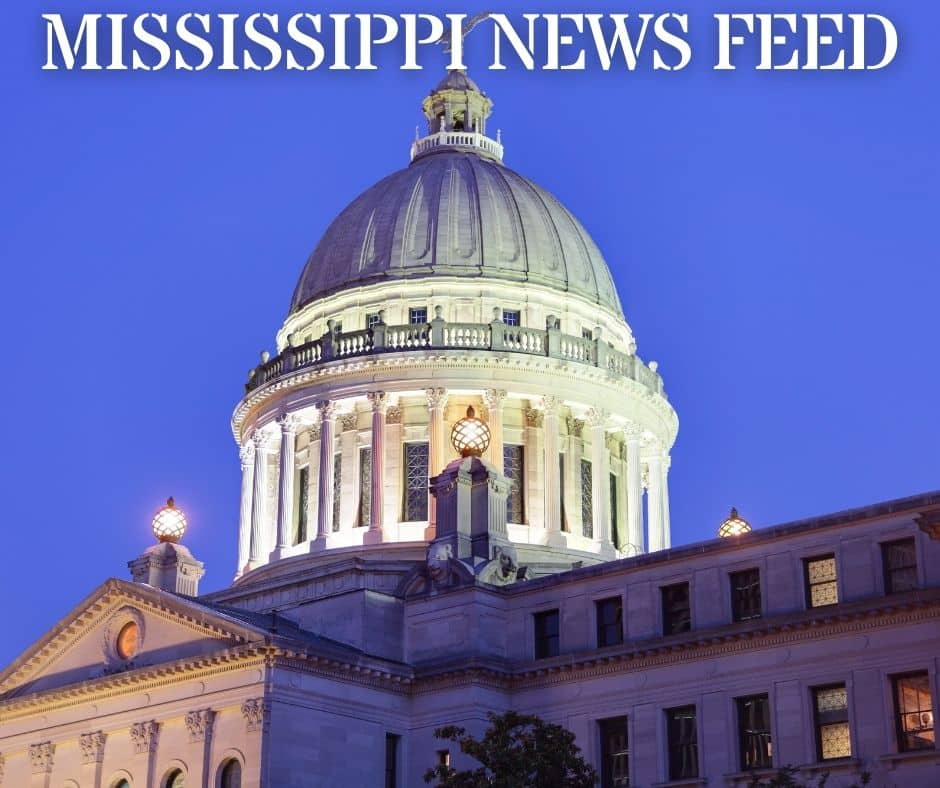Magnolia Tribune
House Committee considers disparity in providing for public defense in Mississippi’s criminal justice system

Low pay and a lack of oversight are some of the issues that need attention when lawmakers look to improve the public defense system in the Magnolia State, witnesses tell legislators.
Public defense is an area of Mississippi’s criminal justice system that needs major reforms to bring it up to par with the state’s prosecution system. The disparity is not just in pay but also in staffing.
That was one of several messages shared during Thursday’s House Judiciary B Committee hearing chaired by outgoing State Representative Nick Bain (R-HD 2). Bain lost his bid for re-election and will not be returning to the Legislature when they gavel in come January 2024.
During the hearing, lawmakers heard from professionals about the need for public defenders to assist indigent defendants in court cases, and the disparity in pay that leads to those lawyers leaving for higher paying jobs. Gail Lowery, with the Hinds County Public Defender’s office, has dealt with that problem firsthand.
When Lowery was appointed to her current position in 2020, on her first day, she found a letter of resignation in her chair from one of the office’s top litigators. The letter explained he was leaving after five years to make more money.
“I wish I could tell you that that was the only letter of resignation that I’ve received as I’ve sat in that office for four years,” Lowery said.
Of the 11 positions in the office at the time, 10 attorneys resigned during her tenure, most of which cited financial reasons, Lowery said. The most recent resignation took place in August of this year. That attorney left to take a job with the Hinds County District Attorney’s office making $35,000 more than Lowery’s office could pay, and she was not the only one, Lowery said.
“The American Bar Association said there should be parity with the District Attorney’s Office because they’re on one side, and we’re on the other side,” Lowery said.
John Colette, an attorney who has been practicing in the state for 40 years, called for the Legislature to put public defenders on par with the state’s prosecutors.
“The poorest people need the best attorneys, and they can’t afford them,” said Colette, adding, “They have seminars, bar convention stuff, they got investigators, witness coordinators, they got coordinators for the coordinators. In the public defender’s office, you got maybe a guy a year out of law school.”
He pleaded with the committee to form a unified system to be able to provide qualified representation to the people who need it most.
“Let’s at least try to serve the most needy in the state of Mississippi, and that’s our indigent people who get accused of a crime,” Colette said.
An ineffective defense can lead a defendant to accept a plea deal that will result in consequences the defendant does not understand at the time, such as losing their right to possess and own a gun and being unable to find gainful employment again, said David Carroll, Executive Director of the Sixth Amendment Center.
The problem is exacerbated when District Attorney offices are approved to hire more staff, while public defender offices are kept at the same budget levels.
Lowery said starting pay for a public defender in her office is $64,000, but other offices such as the Attorney General’s office can offer $90,000. Her office was denied a requested increase from her current $2.3 million total budget to bring about parity with the District Attorney’s office.
“Any given attorney may have 150 cases. When I get that resignation that’s 150 clients who just lost their lawyer. So, we’re scrambling to make sure that somebody who needs to be at arraignment, that needs representation, that we are on that with limited staff because retention, recruitment is an uphill battle,” Lowery said.
The Hinds County Public Defender’s office did receive state funding to hire three more lawyers as part of the passage of HB 1020, bringing her total staff to 14. That office, the largest public defender’s office in the state, has a current total case load of 4,000.
Mississippi Supreme Court Justice Jim Kitchens agreed the Legislature needs to do more to ensure pay scales are adjusted, saying that while prosecutors deserve to make more, in the case of public defenders it’s, “another story.”
“The playing field is far from level. You are the great levelers and I call on you to do what you can to make things as they should be,” Kitchens said.
Not only are public defenders taking positions as prosecutors, some are leaving the state to work elsewhere.
Spencer Cash, president of Magnolia Defenders at the University of Mississippi said Kentucky, Tennessee, Georgia, Florida, Alabama, California and New York have attracted a lot of Mississippi’s law students to be public defenders. He said when students look at the disparity in pay scales, it appears evident that the role of public defender is not as valuable in Mississippi’s eyes.
“If you build it, we will come and people will come because right now we’re leaving,” Cash said.
A lack of oversight was also discussed at the hearing.
Carroll presented data collected as part of a 2018 report that shows the state has deficiencies in the public defense sector, but the state is unaware which ones are deficient due to that lack of oversight. The problem is the 450 public defense services for the indigent across Mississippi, while neighboring states such as Louisiana, Alabama and Arkansas have one each.
“When services are out of sight, out of mind, bad things happen,” Carroll said.
Most counties, 63 of the 82, are currently providing private practice lawyers a flat fee to be public defenders part-time, regardless of how many cases they work and how much time is invested into them throughout the year.
The lack of oversight could also put the state, counties or cities in a position where a class action lawsuit is filed. Some counties have been sued for providing inadequate public defense, such as Scott and Chocktaw counties, said State Public Defender André de Gruy.
If the state sets those standards before the federal government gets involved, the state will have the freedom to establish a system that takes geography and court cultures into consideration, Carroll said.
The House committee also discussed the dead zone between the time an indigent person is arrested to the time they see their attorney for the first time. Carroll said that dead zone leads to a loss of witnesses and evidence not being recovered. Another issue he sees entails some attorneys being afraid to file motions in fear of angering a judge by slowing progress in the case.
“There is no bigger tyranny than when government takes away defense by not providing an effective lawyer,” Carroll said.
Lowery said her staff makes an effort to be with the defendant within 48 hours of their arrest.
“When you have attorneys who are passionate and good at what they do, and there is an opportunity to shore up the constitutional right that is given, we as public defenders take that extremely seriously,” Lowery said.
The higher courts, such as circuit, typically do not see a defendant until they are indicted or enter a plea. As such, Harrell said to address the dead zone in his court is difficult because he does not see the defendant until that time.
Justice Kitchens said the courts need to collaborate to ensure the defendant is aways in touch with a lawyer.
“Justice courts and circuit need to collaborate because there is a disparity of prosperity among our counties,” Kitchens said.
Harrell agrees that indigent defendants need faster access to their lawyer so they do not stay in jail any longer than necessary, but in his district’s more rural areas, that county’s grand jury may only meet twice a year.
“So if someone commits a crime and is indigent, they may wait six months in jail. Period,” Harrell said.
The problem is worsened if the crime lab takes a long time to analyze evidence. Harrell said at times even if the case gets to the grand jury, it may have to be pushed back another six months because the crime lab has not completed its analysis of the evidence. That additional time in jail is not only hard on the defendant, but the taxpayers. In Lamar County, he said it costs $90 per day to house a defendant.
“That can run into some serious money, particularly if you got five jails,” Harrell said.
In addition to the expense of housing a defendant, there is the issue of medical care. Medical expenses last year at the Lamar County Jail totaled $680,800, he said.
“That’s just the medical. And unfortunately, many people who have been indigent, they don’t take care of themselves. They may have diabetes, heart troubles, they may have a lot of issues,” Harrell said. “And the counties have to pay that when they’re locked up.”
Rep. Bain, who is also a lawyer and part-time public defender, asked Harrell how he determines whether a defendant is indigent. Bain noted that he does not see a system in place within the First Judicial District to determine if a defendant truly needs assistance.
“I cannot tell you how many that I had that drive a better car than I do,” Bain said.
Within the 15th Judicial District, especially in the more rural counties, Harrell said he requires the defendant to file an affidavit that he reviews during arraignment. If they are found to be lying, the defendant can be found in contempt or guilty of perjury.
Currently, Mississippi is dead last in the amount of money spent per person for public defense, at an average rate of $9.80 per person. Carroll said the national average is about $20. For comparison, Louisiana spends $16, Tennessee spends $18, and Alabama spends $13.
If Mississippi reached the same level as Alabama, Carroll estimates it would cost an additional $23 million. Those figures only reflect felony cases, he added.
Harrell said within his district there are three counties with part-time public defenders, Jefferson Davis, Lawrence and Marion. In those counties about $9.90 was spent per person on indigent public defense. In the other two counties, Pearl River and Lamar, there are full-time public defenders. The expense per indigent person in those counties was $1.50.
The 15th Judicial District of Mississippi reflects the disparities in various counties. Of the five counties in his district, Harrell said Lamar and Pearl River are dramatically different than the other three because they are growing while the others are losing population. The part-time counties have a total population of 47,000, while Pearl River County and Lamar collectively have about 120,000 people.
Within Pearl River County, Harrell attributed the population growth to an influx of people after Hurricane Katrina, combined with a multi-million-dollar investment by Forrest Health to build a new hospital in Picayune. Harrell also cited the jobs offered at nearby Stennis Space Center. Counties with more population can afford to hire a full-time public defender and additional staff, while the poorer counties can afford only a part-time public defender.
Continued work by this committee will pass to another chair in January. Bain lost the Republican party runoff in September to Brad Mattox. Mattox is unopposed in next month’s general election. At the end of the committee meeting, Bain asked his fellow lawmakers to not be politicians when the next session starts, but to be Mississippians.
“Today I presided over my last Judiciary B committee In Jackson,” Bain posted on X (formerly Twitter). “It has been one the highest honors of my life to work along with these incredible people. This group has made a phenomenal impact on the state of Mississippi… I am grateful for their service and I am a better man because of each of them.”
The post House Committee considers disparity in providing for public defense in Mississippi’s criminal justice system appeared first on Magnolia Tribune.
…
By: Jeremy Pittari
Title: House Committee considers disparity in providing for public defense in Mississippi’s criminal justice system
Sourced From: magnoliatribune.com/2023/10/13/house-committee-considers-disparity-in-providing-for-public-defense-in-mississippis-criminal-justice-system/?utm_source=rss&utm_medium=rss&utm_campaign=house-committee-considers-disparity-in-providing-for-public-defense-in-mississippis-criminal-justice-system
Published Date: Fri, 13 Oct 2023 18:19:42 +0000
Magnolia Tribune
Staring mortality in the face at Christmas
My friend Jarrod is dying after an eight year battle with cancer. He’s lived a life worth celebrating, one that has drawn people to Christ.
I was going about my business this week when I received a text that stopped me in my tracks. A college friend was being moved to hospice care.
Jarrod Egley was diagnosed with colorectal cancer in early 2017. In the fall of 2018, tests revealed the cancer had spread to his lungs and Jarrod’s cancer was classified as Stage IV.
For almost eight years from the date of the original diagnosis, he’s fought. Through surgeries, radiation, endless rounds and cycles of chemotherapy, and experimental immunotherapies, he’s fought.

Last year, I flew out to California and spent some time with Jarrod and his wife, Emily. We sat outside one night. He acknowledged to me that it was not a question of ‘if’, but ‘when’ the cancer would claim his life. I told him I was sorry, because what else is there to say?
We talked about our faith, about the trials of Job, about Jacob wrestling with God, about Paul’s affliction. But mostly we reflected on our time together in school, on the good things, and the mundane things, that happened since.
Jarrod and I met at Tulane University. One Sunday morning in the Spring of my freshman year, I rose from my dorm room bed, dressed, and began walking down Saint Charles Avenue in New Orleans with no particular agenda. I walked until I came across First Baptist Church and the thought flickered in the vacuous recesses of my brain to enter.
Some would say it was a lark. The Calvinist in me says providence. The walk that morning changed the trajectory of my time at Tulane and my life on the whole. Intervarsity Christian Fellowship and the Baptist Collegiate Ministry became central to my life and put me in regular league with Jarrod. I met him first at the BCM and we ultimately ended up attending church together.
Jarrod was a faithful servant on and off campus. He helped organize a group of us that would weekly make our way down to the Esplanade seawall on the backside of the French Quarter to feed the homeless. On Friday nights, he could be found at chapel with a small cadre of students foregoing Bourbon Street for early 2000s worship music.
Jarrod was a loyal friend in those years. Never rude or biting. Not prone to an insult for an easy laugh. Persistently encouraging. An engineering student, his mind worked linearly and was oriented to problem solving. There were never a lot of wasted words — always a lot of deliberative questions when he disagreed or did not understand a point. He exhibited intelligence, empathy, and the kind of moral conviction that sets someone apart.
He also had a wry and dry sense of humor and a penchant for beating people at Madden football. He was fair-to-midland on the ultimate frisbee pitch. Along the way, there were crawfish boils, Mardi Gras outtings, poorly attended Tulane football games, and more than a decent amount of wing eating.
After college, I lost touch with Jarrod. He moved back to his home state of California. He got married to his college sweetheart, who could not have anticipated her husband’s journey, but has been a steady and constant helpmate throughout. Jarrod became a very successful engineer and a bourbon connoisseur. One of his bucket list trips took him to Kentucky, where he got to meet and became friends with bourbon “Hall of Famer” Freddie Johnson of Buffalo Trace acclaim.

Sitting in his backyard nearly 20 years after graduating from Tulane, I saw many of the same qualities I had grown to admire when we were students together. I saw a husband who doted on and supported Emily’s passions. But I also saw someone whose body had been beaten to hell and back, who was tired, and who, like Jacob, had been wrestling with God. We quickly fell back into friendship, which perhaps is the mark of good friendship.
We all have aspirations in our youth — for the kind of spouse or parent we might be, for what we might accomplish, for what we might experience. Along the way, dreams are satisfied, modified, or they die on the vine. The clock inevitably works against all of us. That night in Oceanside, California, Jarrod, a numbers guy, saw that time was not on his side. He believed, as we all would, that he still had more to give, more impact to be made, and more things to see and experience.
After that trip, Jarrod and I stayed in touch, most frequently triggered by news of his cancer. It has been mostly the bad variety in recent months. Now spread throughout his body, down to his bones, he has lived in constant pain for months. Not even a steady diet of morphine and an implanted pain pump solve for it. Jarrod’s been hospitalized twelve times just in 2023.
But his matter of fact sense of humor and way of seeing the world remains in tact. So too does his faith that despite these trials, he has always been safe in the hands of Christ.
There are people in the world who believe that life is random, disordered, and without reason. I am not among them. I think my friend is staring mortality in the face at Christmas for a reason.
For thousands of years before Christ came, there was darkness and despair. Sin and shame gripped the hearts of men. Until one holy night, God, in His infinite love, mercy and wisdom, sent His son to save. Jesus is the light of the world and the hope of man. He has won victory over death and Jarrod’s will not be the exception. Jesus came for Jarrod, and for you.
For thousands of years since Jesus’s death, burial, and resurrection, His disciples have been used as divine instruments to point the way to God. Jarrod is among them. If life expectancies were the measure, Jarrod would be at the midway point for most people. He’s made a lifetime of impact for the Kingdom and on other people.
So, to my friend Jarrod, you were placed here with a purpose. You have run your race. You are loved. And when this chapter closes, you will hear “well done, my good and faithful servant.” There is no greater evidence of a life well lived.
While Jarrod and Emily have been fortunate to have health insurance, their portion of the medical bills so far in 2023 have eclipsed $30,000, and Emily is facing additional uncovered expenses during Jarrod’s hospice care, including a night nurse that costs over $400 a night. If you would like to help defray the cost, a contribution can be made at their Go Fund Me page.
The post Staring mortality in the face at Christmas appeared first on Magnolia Tribune.
…
By: Russ Latino
Title: Staring mortality in the face at Christmas
Sourced From: magnoliatribune.com/2023/12/16/staring-mortality-in-the-face-at-christmas/?utm_source=rss&utm_medium=rss&utm_campaign=staring-mortality-in-the-face-at-christmas
Published Date: Sat, 16 Dec 2023 15:05:22 +0000
Did you miss our previous article…
https://www.biloxinewsevents.com/magnolia-mornings-december-15-2023/
Magnolia Tribune
Magnolia Mornings: December 15, 2023
Important state and national stories, market and business news, sports and entertainment, delivered in quick-hit fashion to start your day informed.
In Mississippi
1. Laurin St. Pe’ named CEO of Singing River Health System

The Board of Trustees of Singing River Health System announced the immediate appointment of Laurin St. Pe’ as the Chief Executive Officer on Thursday.
“We are thrilled to announce Laurin St. Pe as the new CEO of Singing River,” said Steve Ates, Board President in a statement. “His wealth of healthcare experience and proven track record make him the ideal leader to steer our health system toward its next phase of growth and success.”
St. Pe’, who has been serving as Interim CEO since July 2023, said he is honored to assume the role of CEO at Singing River. He has worked at Singing River as Administrator of Singing River Health System’s Pascagoula Hospital and Gulfport Hospital, in addition to overseeing program service lines throughout the entire system to his subsequent appointment as Chief Operating Officer of Singing River.
The health system says St. Pe played a crucial role in the financial revitalization of Singing River Health System while steering the organization toward financial stability.
2. Gulfport-Biloxi airport, Stennis evacuated after threats

The Gulfport-Biloxi International Airport was evacuated on Thursday morning “out of an abundance of caution,” airport officials said, after receiving an emailed threat to certain transportation entities across the state.
The airport was thoroughly security swept, cleared and reopened in just over two hours. Gulfport-Biloxi is now operating regularly.
The threat was also sent to Stennis International Airport. Their staff and personnel were also evacuated until the facilities could be swept and cleared.
Any passenger whose travel was affected by the evacuation is encouraged to contact their respective air carrier.
3. Cassidy arrested in Iowa for beheading Satanic Temple statue
Former Mississippi congressional and legislative candidate Michael Cassidy was arrested this week in Iowa for beheading a statue at the state’s Capitol erected by The Satanic Temple.
Cassidy reportedly decapitated the statue and turned himself to police on Thursday. He was charged with fourth degree criminal mischief. He then started an online legal defense fund where he’s raised upwards of $20,000 as of Thursday night, according to his X account.
4. “Serial fraudster” ordered to cease offering investments into companies
According to the Mississippi Secretary of State’s office, on October 26, 2023, Secretary Michael Watson and the Securities Division issued an order against Stephone N. Patton. The SOS says Patton is a serial fraudster with multiple criminal convictions in Mississippi and Florida.
Through business filings with the SEC and Mississippi, Patton has held himself to be the CEO of various companies, including Star Oil and Gas Company, Inc., North Gulf Energy Corporation, Inc., Patton Oilfield Services, Inc., and Patton Farms, LLC.
The SOS says using these business filings and company websites, Patton claimed to have raised hundreds of billions of dollars through investment opportunities. Through investigative efforts and collaboration with the SEC, the SOS discovered none of Patton’s companies are operational, have any assets, or generate any revenues. Account records show Patton spent investors’ funds almost as soon as he received them on personal expenses. The total amount of known investments made to Patton’s fraudulent companies is over $80,000. Further, none of Patton’s investment offerings have been registered or notice filed with the Mississippi Secretary of State’s Office.
The SOS order requires Patton to cease and desist from offering investments with his companies, requiring Patton to permanently deactivate his companies’ websites to prevent any further dissemination of his false or misleading information. Patton is also ordered to pay an administrative penalty of $25,000 to the Mississippi Secretary of State’s Office for these violations, in addition to restitution owed to all his Mississippi investors.
National News & Foreign Policy
1. Congressional retirements mounting as 2024 election cycle nears
Retirement and departure announcements are piling up ahead of the start to the 2024 election cycle. The New York Times has developed a Retirement Tracker that currently shows 22 Democrats and 11 Republicans who are in Congress now will not be seeking re-election next year.
“Dozens of members of Congress have announced plans to leave their seats in the House of Representatives, setting a rapid pace for congressional departures, with more expected as the 2024 election draws closer,” the NY Times reports. “Given Republicans’ razor-thin House majority, the wave of exits has the potential to lead to a significant shake-up next year.”
You can find the tracker here.
2. Texas, Daily Wire, The Federalist sue U.S. State Department over media censorship

The U.S. State Department’s Global Engagement Center has come under fire as Texas Attorney General Ken Paxton along with The Daily Wire and The Federalist have filed a federal lawsuit alleging that the department funded technology that could “render disfavored press outlets unprofitable.” They claim that the department has helped social media – Facebook, YouTube and X (formerly Twitter) – to censor free speech while funding technologies used to censor right-leaning news outlets such as theirs.
New Civil Liberties Alliance is representing The Daily Wire and The Federalist. Paxton and the outlets claim the Global Disinformation Index (GDI), a British think tank, received a $100,000 grant from the State Department in 2021, and NewsGuard, which rates the “misinformation” levels of news outlets, received $25,000 from the State Department in 2020, according to the lawsuit.
According to the State Department’s website, the Global Engagement Center’s mission is to direct, lead, synchronize, integrate, and coordinate U.S. Federal Government efforts to recognize, understand, expose, and counter foreign state and non-state propaganda and disinformation efforts aimed at undermining or influencing the policies, security, or stability of the United States, its allies, and partner nations.
As reported by Reuters, the lawsuit cited a GDI-produced list from December 2022 that ranked The Daily Wire and The Federalist as among the 10 “riskiest sites” for news while the least-risky included The New York Times, Associated Press and NPR. Reuters notes that the lawsuit alleges such “blacklists” are reducing revenues to The Daily Wire and The Federalist along with their visibility on social media and ranking results from browser searches.
Sports & Entertainment
1. SEC releases 2024 schedules

Wednesday evening, the Southeastern Conference released the 2024 football schedules for its member schools, including of interest in the Magnolia State the schedules for Ole Miss and Mississippi State.
It is the first schedule that includes new conference members University of Oklahoma and University of Texas, bringing the conference to 16 schools. Each SEC team will play eight conference football games plus at least one required opponent from the ACC, Big Ten, Big 12, Pac 12 or major independent, each team will have two open dates.
The 2024 season will be the first year the SEC will play a schedule without divisional competition since 1991. The top two teams in the league standings based on winning percentage will play in the 33rd SEC Football Championship Game in Mercedes-Benz Stadium in Atlanta on Saturday, December 7.
2. White, Jesiolowski, Jones honored by MAIS

The Midsouth Association of Independent Schools (MAIS) in Mississippi, comprised of non-public schools, announced this week that Madison-Ridgeland Academy’s senior quarterback John White was named the 6A Player of the Year while Hartfield’s Reed Jesiolowski and Hartfield Chris Jones were named the MAIS 6A Offensive and Defensive Players of the Year, respectively.
All three have committed to play college football at the University of Mississippi.
White is Mississippi’s all-time leader in career passing yards with 15,259 yards, a record he broke during the 2023 season.
MAIS, like the Mississippi High School Activities Association (MHSAA) for public schools, is broken down into classifications, from 1A to 6A. However, MHSAA added a 7A this season.
Markets & Business
1. Consumer retail sales up as energy, gas prices move down

The U.S. Bureau of Labor Statistics reported this week that the Consumer Price Index rose 0.1% in November after being unchanged in October. Retail sales rose 0.3% in November after rising 0.2% in October, meaning consumers continue to spend at the start of the holiday season.
The CPI or inflation rate is 3.1%, higher than the Federal Reserve target of 2% but below the 9% peak in 2022 which reached a 40-year high.
As for the energy index, BLS reported that it fell 2.3% in November after decreasing 2.5% in October. The gasoline index decreased 6% in November, following a 5% decrease in the previous month.
The index for fuel oil fell in November, decreasing 2.7%. However, the natural gas index rose 2.8% over the month after rising 1.2% the previous month. The index for electricity also rose 1.4% in November, after increasing 0.3% in October.
The energy index fell 5.4% over the past 12 months. The gasoline index decreased 8.9%, the natural gas index declined 10.4%, and the fuel oil index fell 24.8% over this 12-month span.
2. Week’s market rally continues into Friday
At close of trading on Thursday, the U.S. markets continued the week’s rally, pushing the Dow up 158 points to 37,248 while the Nasdaq and S&P also made gains, 27 points and 12 points, respectively, to close at 14,761 and 4,719.
The record high for the Dow on Thursday moved futures up 102 points.
According to CNBC, the major averages are headed for their seventh straight positive week. As of Thursday, the Dow is higher on the week by 2.8%. The S&P 500 is up by 2.5%, while the Nasdaq Composite rose 2.5% this week.
Stocks rallied after the Federal Reserve left rates unchanged this week while members look towards cuts in the new year and beyond.
The post Magnolia Mornings: December 15, 2023 appeared first on Magnolia Tribune.
…
By: Magnolia Tribune
Title: Magnolia Mornings: December 15, 2023
Sourced From: magnoliatribune.com/2023/12/15/magnolia-mornings-december-15-2023/?utm_source=rss&utm_medium=rss&utm_campaign=magnolia-mornings-december-15-2023
Published Date: Fri, 15 Dec 2023 13:00:00 +0000
Magnolia Tribune
New water rates expected in Jackson come 2024; those who don’t pay face shut off
Interim Third-Party Director Ted Henifin said this week that only about 59% of the City of Jackson’s water customers are paying their bills.
JXN Water has announced new rates and fees coming in 2024. Those who are not paying will be at risk of shut offs.
The company, which was established by federal appointed interim Third-Party Director Ted Henifin, has been overseeing the city’s water system for the better part of a year.
Officials estimated that the average cost for water in the city was $76 per month for residents. Henifin clarified that JXN water will not attempt to recoup any charges prior to November 29, 2022, and will work with those who have failed to pay since that time.
He said only about 59 percent of the city’s water customers are paying their bills.
“You can’t forgive bills, so we have to be creative in how we part that,” said Henifin in reference to Mississippi’s laws that prevent giving away water.
According to a release by JXN Water announcing the rate changes, residents in single family households with small meters that use up to 748 gallons daily would see a bill increase of roughly .30 cents per day. Research indicates that the average U.S. family uses 300 gallons per day.
SNAP customers will have a new rate tier that could lower their bill by up to .69 cents per day, on average.
“Those who need to save the most benefit from saving money by drinking tap water. This new rate structure makes water affordability possible for 12,500 JXN Water customers who receive SNAP benefits,” said Henifin in the release.

Read more about the anticipated rate changes here.
New fees will also be implemented, including a new service fee of $50, service deposit of $100, returned check fee of $25, service restoration fee of $100, and meter tampering charge of $500.
JXN Water has continued to encourage residents to use the water, with Henifin going on the record in a federal status hearing saying that the water “was safe to drink.”
More conversation regarding the billing process is expected to come at next week’s Jackson City Council meeting.
The post New water rates expected in Jackson come 2024; those who don’t pay face shut off appeared first on Magnolia Tribune.
…
By: Sarah Ulmer
Title: New water rates expected in Jackson come 2024; those who don’t pay face shut off
Sourced From: magnoliatribune.com/2023/12/15/new-water-rates-expected-in-jackson-come-2024-those-who-dont-pay-face-shut-off/?utm_source=rss&utm_medium=rss&utm_campaign=new-water-rates-expected-in-jackson-come-2024-those-who-dont-pay-face-shut-off
Published Date: Fri, 15 Dec 2023 20:00:00 +0000
-

 SuperTalk FM6 days ago
SuperTalk FM6 days agoNew Amazon dock operations facility to bring 1,000 jobs to Marshall County
-

 News from the South - Missouri News Feed2 days ago
News from the South - Missouri News Feed2 days agoMissouri lawmakers on the cusp of legalizing housing discrimination
-

 News from the South - Alabama News Feed7 days ago
News from the South - Alabama News Feed7 days agoPrayer Vigil Held for Ronald Dumas Jr., Family Continues to Pray for His Return | April 21, 2025 | N
-

 News from the South - Florida News Feed6 days ago
News from the South - Florida News Feed6 days agoTrump touts manufacturing while undercutting state efforts to help factories
-

 News from the South - Florida News Feed6 days ago
News from the South - Florida News Feed6 days agoFederal report due on Lumbee Tribe of North Carolina’s path to recognition as a tribal nation
-

 News from the South - Oklahoma News Feed6 days ago
News from the South - Oklahoma News Feed6 days agoOklahoma Treasurer’s Office Faces Scrutiny Over Use of Signal in Anti-ESG Coordination
-

 Mississippi Today4 days ago
Mississippi Today4 days agoStruggling water, sewer systems impose ‘astronomic’ rate hikes
-

 Mississippi Today1 day ago
Mississippi Today1 day agoDerrick Simmons: Monday’s Confederate Memorial Day recognition is awful for Mississippians













































